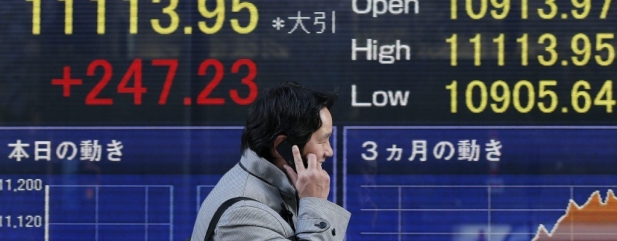Archived article
Please note that tax, investment, pension and ISA rules can change and the information and any views contained in this article may now be inaccurate.
Shock resignation of Japan PM hits Nikkei

AJ Bell is an easy to use, award-winning platform Open an account
We've accounts to suit every investing need, and free guides and special offers to help you get the most from them.
You can get a few handy suggestions, or even get our experts to do the hard work for you – by picking one of our simple investment ideas.
All the resources you need to choose your shares, from market data to the latest investment news and analysis.
Funds offer an easier way to build your portfolio – we’ve got everything you need to choose the right one.
Starting to save for a pension, approaching retirement, or after an explainer on pension jargon? We can help.
Please note that tax, investment, pension and ISA rules can change and the information and any views contained in this article may now be inaccurate.

News of Japan’s prime minister Shinzo Abe stepping down due to ill-health has shocked financial markets.
In a flash indication for what it means for Japanese stocks, the country’s benchmark Nikkei 225 index plunged 1.41% in afternoon trading on 28 August shortly before the news was confirmed following widespread speculation.
Known for stimulating the country’s growth with his aggressive economic policy known as ‘Abenomics’, the abrupt resignation of Japan’s longest serving PM has also shaken the yen and Japan’s bond market with both asset classes falling.
But many in the market don’t think there will be much change despite Abe’s departure. AVI Japan Opportunity (AJOT) manager Joe Bauernfreund says Japanese companies see the merits in Abe’s economic reforms and have no desire to reverse course, and will continue to put a greater focus than they did before the reforms on shareholder returns and capital efficiency.
Whoever takes over from Abe is expected to keep existing economic policies in place, particularly given the current pandemic, as the country looks to avoid falling back into the deflationary spiral which caused its ‘lost decade’ in the 1990s.
These articles are provided by Shares magazine which is published by AJ Bell Media, a part of AJ Bell. Shares is not written by AJ Bell.
Shares is provided for your general information and use and is not a personal recommendation to invest. It is not intended to be relied upon by you in making or not making any investment decisions. The investments referred to in these articles will not be suitable for all investors. If in doubt please seek appropriate independent financial advice.
Investors acting on the information in these articles do so at their own risk and AJ Bell Media and its staff do not accept liability for losses suffered by investors as a result of their investment decisions.
The value of your investments can go down as well as up and you may get back less than you originally invested. We don't offer advice, so it's important you understand the risks, if you're unsure please consult a suitably qualified financial adviser. Tax treatment depends on your individual circumstances and rules may change. Past performance is not a guide to future performance and some investments need to be held for the long term.
 magazine
magazine